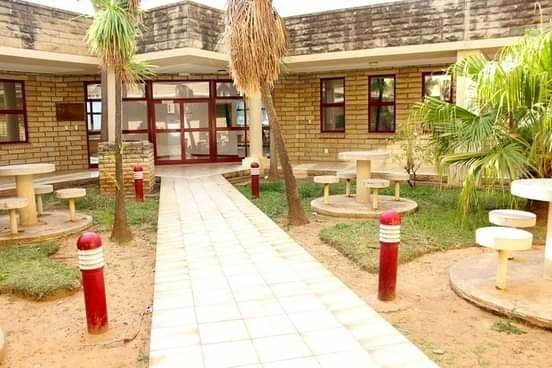So you have just enjoyed fresh salad from lettuce you bought at Pick ‘n Pay or Enrich or at some restaurant around town? It could be that Bokang Monyamane and his family produced that lettuce! “Ours is a family agribusiness based in Morija,” Bokang introduced. “It is me, my wife, my brother and both of our parents in the business.”
Just this season, Bokang and his family have produced 1200 heads of lettuce. “More is coming as we aim for growth in the agribusiness,” he said.
This is the story of the Monyamane family and their interesting business which seeks to change the farming landscape in Lesotho.
________________
WhatsApp them here: +266 5973 4603
It turns out farming was wired into Monyamane’s DNA while he was still very young. “Hardly was I five years old when my mom plunged me into farming,” said the young man who holds Masters Degree from Limkokwing University of Creative Technology (LUCT). “I still remember I already had a watering can and a digging fork by then. In fact our peers used to joke about how hard we worked in our family.”
Then there was his grandma.
You know!
Grandmas-and-pas are the most amazing people on earth. Really! Having given up youthful ambitions, no humans are as fascinating and as deserving of their attention as their grandchildren.
His grandma wasn’t any different.
______________
Join NUL Innovation Hub’s Phuthalichaba here, The Future Bank of the People: www.phuthalichaba.com/register
“She used to give me all kinds of seeds to grow flowers,” she fondly remembered her grandma. “She would say, this is flower so and so, this is a seed for this and that, it will help you with one or two. Even today, I have up to 30 different flowers where I live, I just love them.”
Monyamane’s family is blessed with a relatively huge site at home. Just 20% of their site is a built-up area, “the rest is there for us to put crops.” In fact, they used to grow so many vegetables that they would supply Morija Primary, Girls School, Thabeng High School and restaurants in the area.
With that kind of upbringing, who wouldn’t have grown the heart of a farmer?
With time, something interesting was awaiting his agric-loving family.
SADP funding!
They call it Smallholder Agricultural Development Project (SADP). “In 2018, my family heard about SADP.” He said the moment they heard about it, they knew they wanted to try their luck. They plotted as family and applied.
Results came out and they had failed.
One thing about farmers is that they are extremely patient, or as one wise man would have put it, “life on a farm is a school of patience; you can’t hurry the crops or make an ox in two days.”
So another opportunity came and, oops! They were applying again—they are farmers.
As fate would have it, they won this time.
Then, the work began.
They plunged into the nuts and bolts of vegetable farming. With an addition of some family funds, they created a borehole, bought a shade-net and poles, put together all the necessities and labour.
They even attended cropping classes.
In 2020, they had grown lettuce and red, yellow and green pepper. This year, they focused exclusively on lettuce and they are supplying the likes of Enrich Stores, Pick ‘n Pay and a host of restaurants around Maseru.
The young man has in store, a wise parting words for the young aspiring farmers. His advice can first be summarised like this:
You reap what you wow—perhaps the truest words in the whole of farming.
Here is the first of the wisdom he has gathered over the years.
Rule 1: Agriculture is not (necessarily) Agri-Business.
Well, “we have done agriculture since the times of Moshoeshoe and beyond. However, in agribusiness, we must realise we need to create business structures if we are to sell.”
Don’t be a jack of all trades, “for instance, I am the Director, I oversee the whole business, my wife does finances and content branding, my brother is into graphics, designs and packaging and our parents are labourers. Everyone know their roles.”
Rule 2: If you don’t know whom you are going to sell to, don’t put seeds on the soil, “otherwise you will end up complaining about the lack of markets. More often than not, it is not the lack of markets as it is the lack of analysis of the markets. For instance, BEFORE you grow a lettuce, ask yourself, who would buy this product? Whenever possible, make a deal with the potential buyer before you even plant a single seed.”
Rule 3: Brand “wants” not “needs”, “we don’t need to package everything, we don’t need to brand everything. For instance, I have to spend money branding my lettuce because it is a want, not a need. If I grew maize, would I brand it? Maybe not.”
Rule 4: “Don’t expect profits at the first trial,” he concluded. Pyramid schemes may be there for those who want (but rarely ever get) quick returns. Real business is not a pyramid scheme. It may take many, many years to realize profits.


